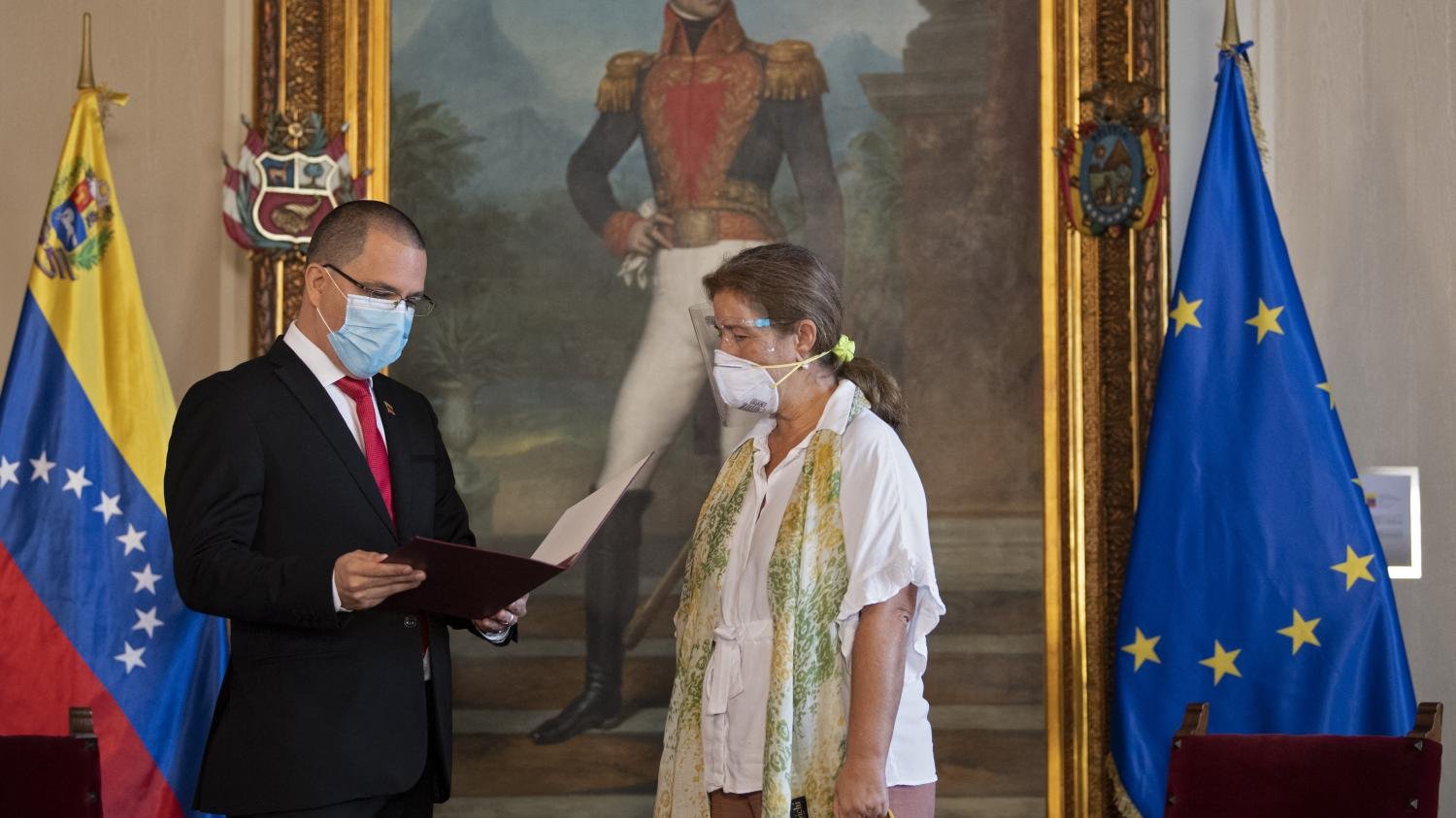
It’s a new little diplomatic crisis between Brussels and Caracas. Venezuela declared EU Ambassador Isabel Brilhante persona non grata and gave her three days to leave the country. Venezuela is raising its tone after the European Union imposed new sanctions on 19 Venezuelan figures. The European Union asks Venezuela to reverse this decision voted on Wednesday February 24 by the new Venezuelan National Assembly, totally at the orders of President Nicolas Maduro. Brussels believes that this expulsion will only increase the isolation of Venezuela and the EU calls for negotiation and dialogue.
However, Venezuela launched this expulsion in response to the decision of the 27 European countries of the Union to impose new sanctions against personalities close to Nicolas Maduro: 19 Venezuelans found responsible for serious human rights violations, d undermining of democracy and the rule of law and violations of fundamental restrictions have been added to the list of those subject to European sanctions. The list of targeted sanctions launched in November 2017 now has 55 names: officials and senior officials of the Venezuelan government, who can no longer travel and whose money has been frozen in the territory of the European Union.
But this is not the first time that Caracas has claimed the head of Isabel Brilhante. Venezuela had undertaken the same approach in July 2020, again in the aftermath of European sanctions against dignitaries of the regime of Nicolas Maduro. Eventually, the Venezuelan authorities backed down and the European ambassador remained in Caracas. How will it be today? What is certain is that the tensions between the European Union and Venezuela will not end until the Venezuelan crisis worsens.
The European Union criticized the elections last December which allowed the Venezuelan president to control what he lacked, namely parliament. Although supported by the EU, the Venezuelan opposition and its leader Juan Guaido are at bay. Nicolas Maduros reigns supreme. But the country is in a dire state: violence, insecurity, drug and food shortages have already forced more than five million people to leave Venezuela.
